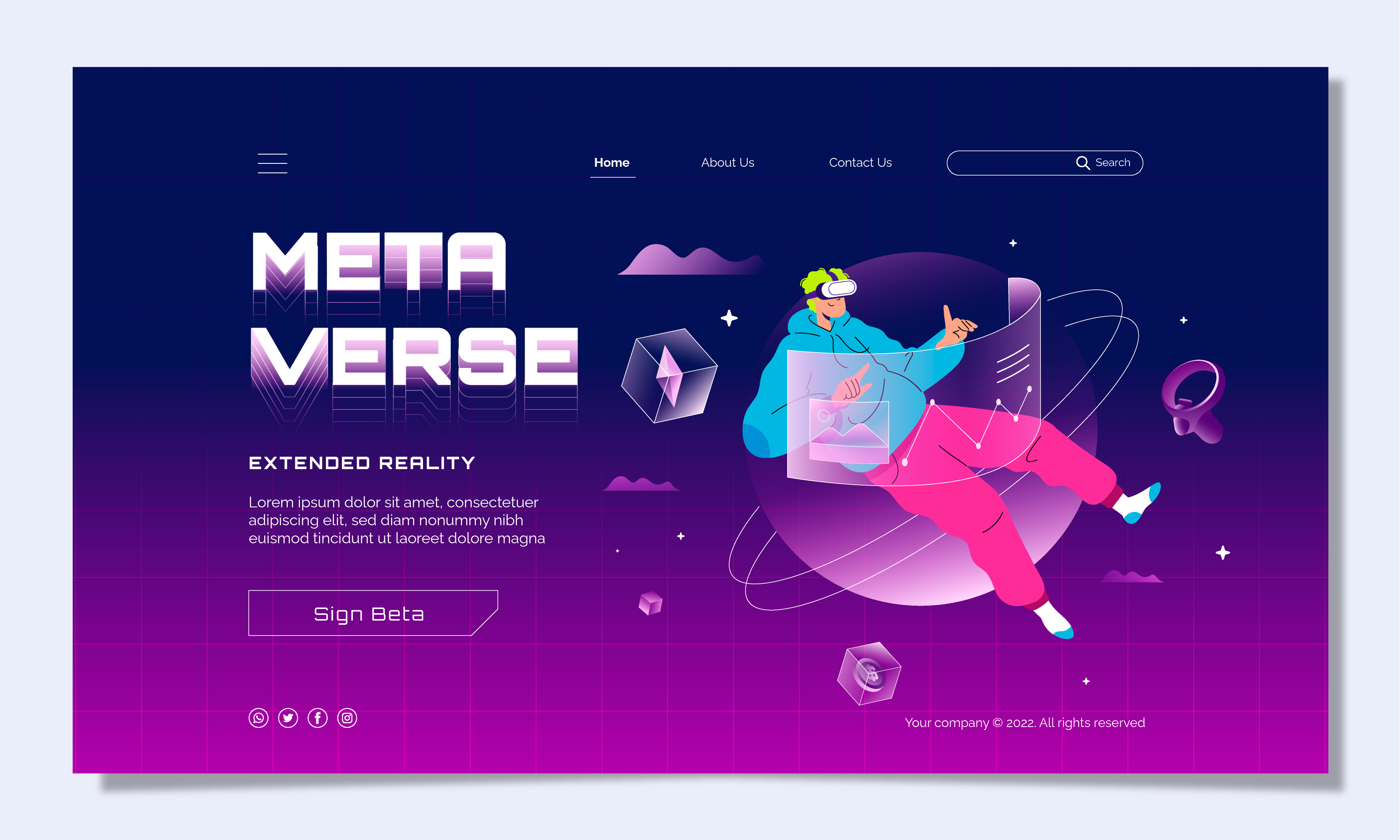
The Metaverse, a term once confined to the realms of science fiction, has now become a tangible reality with far-reaching implications for brands and consumers alike. As technology continues to evolve, the Metaverse presents a unique frontier for building brands and creating immersive experiences. In this blog post, we will delve into the opportunities that the Metaverse offers for brands, exploring how they can leverage this digital landscape to connect with audiences in unprecedented ways. As a virtual experience aficionado, we will also showcase the expertise required to create truly immersive encounters that captivate and resonate with users.
Understanding the Metaverse
Before we plunge into the myriad opportunities the Metaverse presents for brands, it's essential to establish a foundational understanding of what the Metaverse is. The Metaverse is a collective virtual shared space that is created by the convergence of physical and virtual reality. It's a space where users can interact with a computer-generated environment and other users in real-time.
At the core of the Metaverse is the idea of interconnected virtual worlds, typically accessed through the internet. These worlds can take various forms, from social spaces and gaming environments to elearning platform and digital marketplaces. The Metaverse transcends the boundaries of traditional online experiences, providing a seamless blend of the physical and digital realms.
Opportunities for Brands in the Metaverse
The emergence of the Metaverse opens up a plethora of opportunities for brands willing to embrace this new frontier. Let's explore some of the key avenues for brand engagement within the Metaverse:
-
Virtual Brand Presence: The Metaverse allows brands to establish a virtual presence that goes beyond conventional websites or social media profiles. Brands can create immersive environments that users can explore, interact with, and even personalize. This opens up new avenues for storytelling and brand expression, providing a unique opportunity for users to engage with a brand's ethos on a deeper level.
-
Social Engagement: In the Metaverse, social interactions take on a new dimension. Brands can host virtual events, launch parties, and interactive experiences, fostering a sense of community among users. This social engagement transcends geographical boundaries, enabling brands to connect with a global audience in real-time.
-
E-Commerce in 3D: Traditional e-commerce platforms are limited in their ability to provide a tangible product experience. In the Metaverse, brands can create virtual stores where users can explore products in three-dimensional space before making a purchase. This immersive shopping experience enhances the customer journey and reduces the uncertainty associated with online shopping.
-
Branded Virtual Spaces: Brands can design and own virtual spaces within the Metaverse, creating branded environments that align with their identity. These spaces can serve as interactive hubs for users, offering a range of experiences from entertainment to education. Think of it as a digital extension of a brand's physical footprint.
-
Innovative Advertising Formats: Traditional advertising methods may struggle to capture the attention of digital-savvy users. In the Metaverse, brands can leverage innovative advertising formats that blend seamlessly with the virtual environment. From interactive billboards to sponsored in-world experiences, brands can create memorable and personalized advertising campaigns.
Expertise in Creating Immersive Virtual Experiences
Now that we've explored the opportunities, let's shift our focus to the expertise required to craft truly immersive virtual experiences. As a seasoned professional in the realm of virtual experiences, I understand the intricacies involved in creating environments that captivate and resonate with users.
-
User-Centric Design: The foundation of any immersive experience lies in understanding the user. User-centric design principles are paramount in the Metaverse, where user interaction defines the success of a virtual space. From intuitive navigation to seamless interactions, the design must prioritize the user's experience at every turn.
-
Immersive Technologies: Mastering the technologies that power the Metaverse is a prerequisite for creating immersive experiences. This includes proficiency in virtual reality (VR), augmented reality (AR), and mixed reality (MR) technologies. The ability to seamlessly integrate these technologies into a cohesive experience is crucial for delivering a truly immersive encounter.
-
Storytelling in 3D: In the Metaverse, storytelling takes on a three-dimensional form. Crafting narratives that unfold in virtual space requires a unique skill set. It's not just about visuals; it's about creating a narrative that users can actively participate in. The narrative must be dynamic, responsive, and capable of evolving based on user interactions.
-
Multi-Sensory Engagement: Immersive experiences extend beyond visual stimuli. Integrating auditory, tactile, and even olfactory elements can elevate virtual encounters to new heights. The ability to design multi-sensory experiences adds depth and richness to virtual spaces, making them more engaging and memorable.
-
Cross-Platform Integration: The Metaverse is not a singular entity; it comprises various platforms and ecosystems. Expertise in seamlessly integrating virtual experiences across different platforms ensures that brands can reach a wider audience. Whether users are accessing the Metaverse through VR headsets, AR glasses, or traditional screens, the experience should be cohesive and consistent.
Case Studies: Bringing the Metaverse to Life
To illustrate the potential of the Metaverse for brands and the expertise required to create immersive virtual experiences, let's explore a couple of hypothetical case studies:
Case Study 1: Virtual Fashion Show Extravaganza
Objective: A renowned fashion brand aims to launch its latest collection in a way that transcends traditional runway shows and reaches a global audience.
Metaverse Strategy: The brand collaborates with virtual experience experts to create a 3D virtual fashion show within the Metaverse. Users can attend the show using VR headsets or access it through a dedicated app on their devices. The virtual environment replicates a stunning venue, and users can interact with the clothing items in 3D before making purchases directly through the virtual space.
Expertise Showcased:
- User-centric design for easy navigation and interaction.
- Immersive technologies for a lifelike virtual fashion show experience.
- Multi-sensory engagement by incorporating virtual ambiance and music.
Case Study 2: Branded Virtual Campus for Education and Entertainment
Objective: A global technology company wants to create a virtual space that serves as both an educational hub and an entertainment destination for its community of users.
Metaverse Strategy: The brand partners with virtual experience experts to design a virtual campus within the Metaverse. The campus features interactive classrooms for educational sessions, a virtual auditorium for product launches and presentations, and entertainment zones for socializing and gaming. The brand hosts regular events, fostering a sense of community and knowledge-sharing.
Expertise Showcased:
- Cross-platform integration for a seamless experience across devices.
- Storytelling in 3D to create a cohesive narrative for the virtual campus.
- Branded virtual spaces that reflect the company's identity and values.
Conclusion
The Metaverse is not just a technological buzzword; it's a transformative force that is reshaping the way brands engage with their audiences. The opportunities within the Metaverse are vast, from establishing virtual brand presence to creating immersive experiences that leave a lasting impression.
As a virtual experience expert, I have highlighted the key opportunities for brands in the Metaverse and showcased the expertise required to navigate this dynamic landscape. From user-centric design to multi-sensory engagement, crafting memorable virtual experiences demands a blend of creativity, technological proficiency, and a deep understanding of user behavior.
Brands that embrace the Metaverse and invest in creating meaningful virtual experiences stand to gain a competitive edge in the digital landscape. The Metaverse is not just a destination; it's a journey of innovation and exploration, and brands that embark on this journey are poised to redefine the future of brand engagement.
Latest Post




